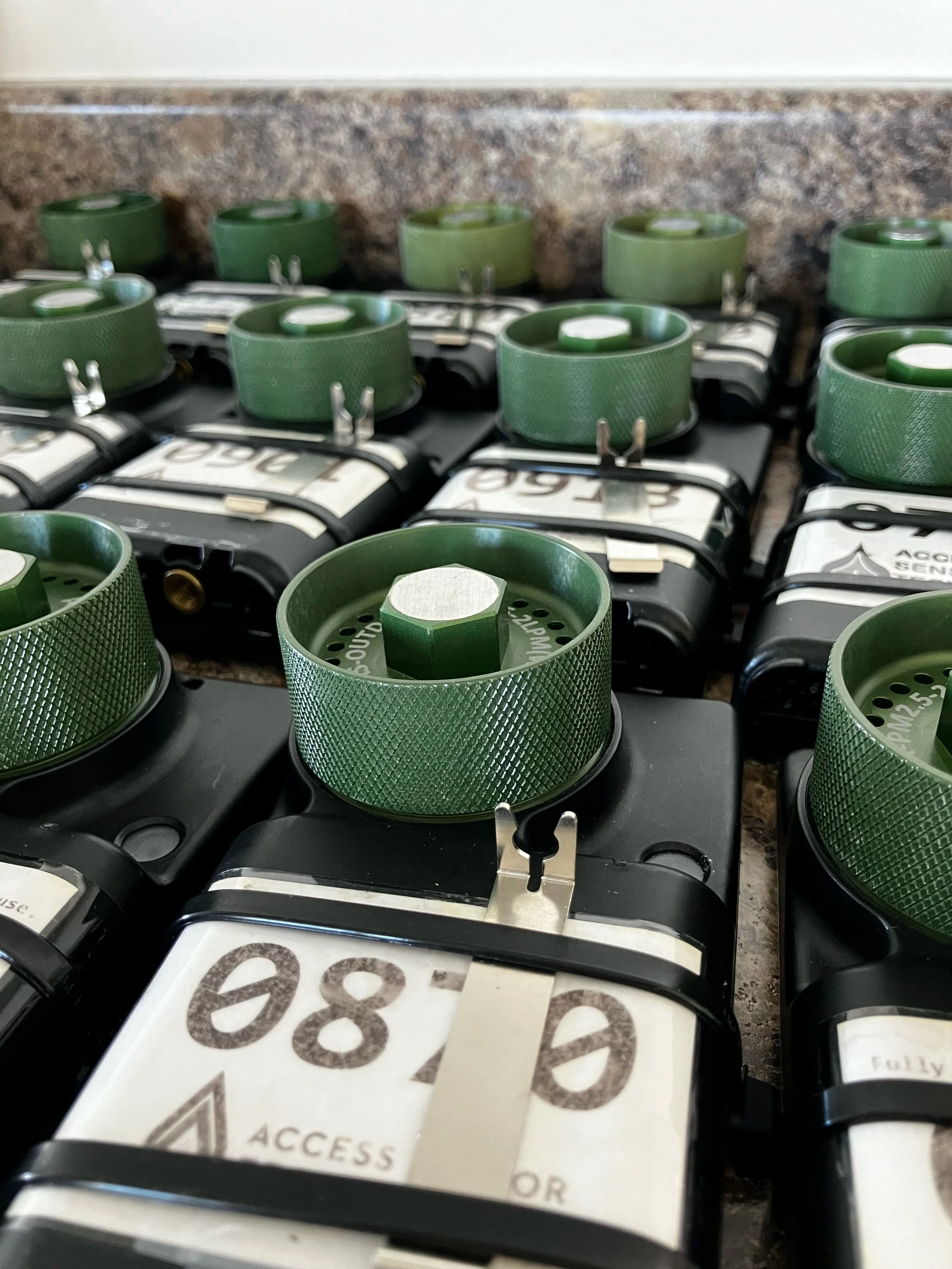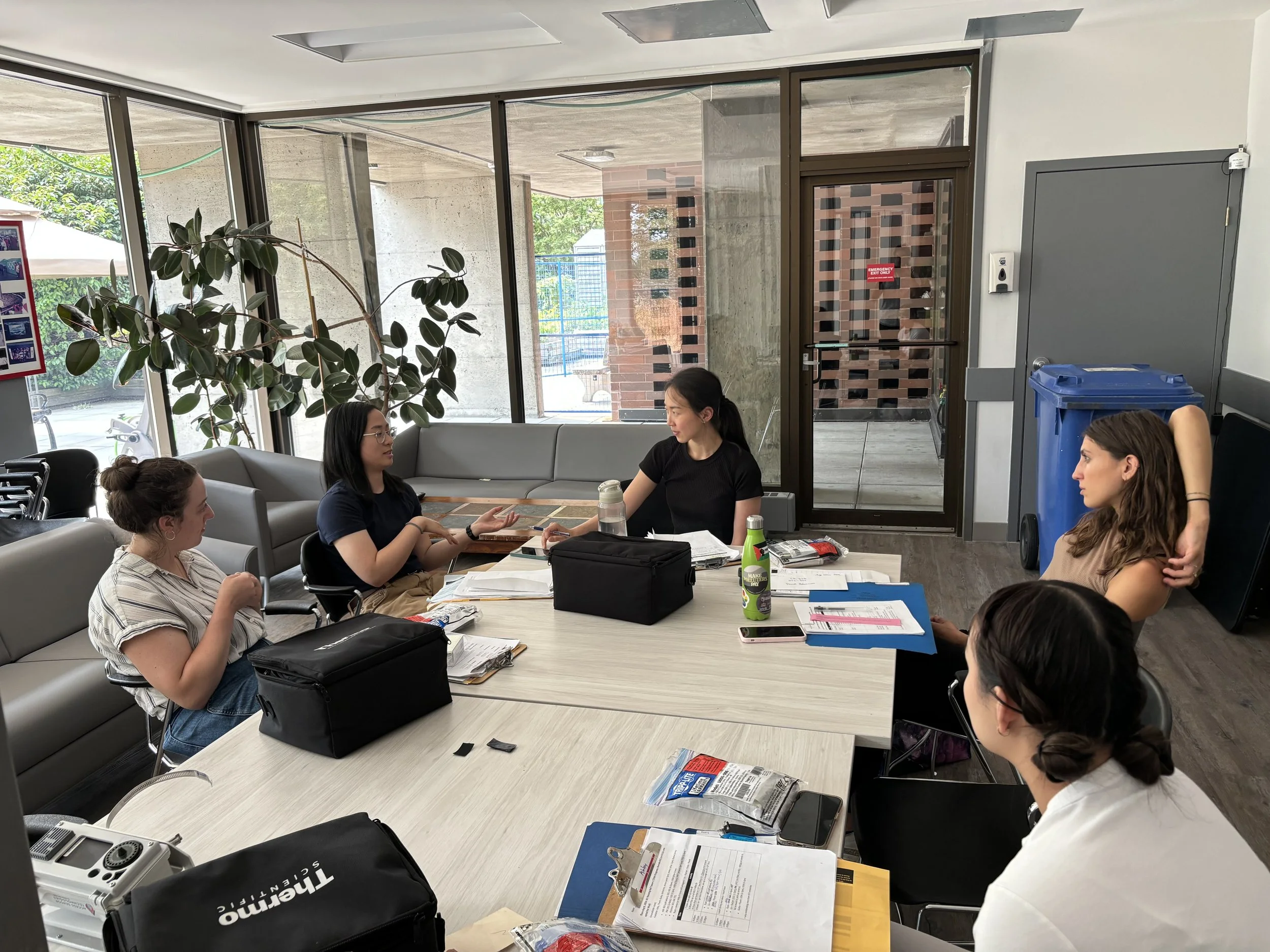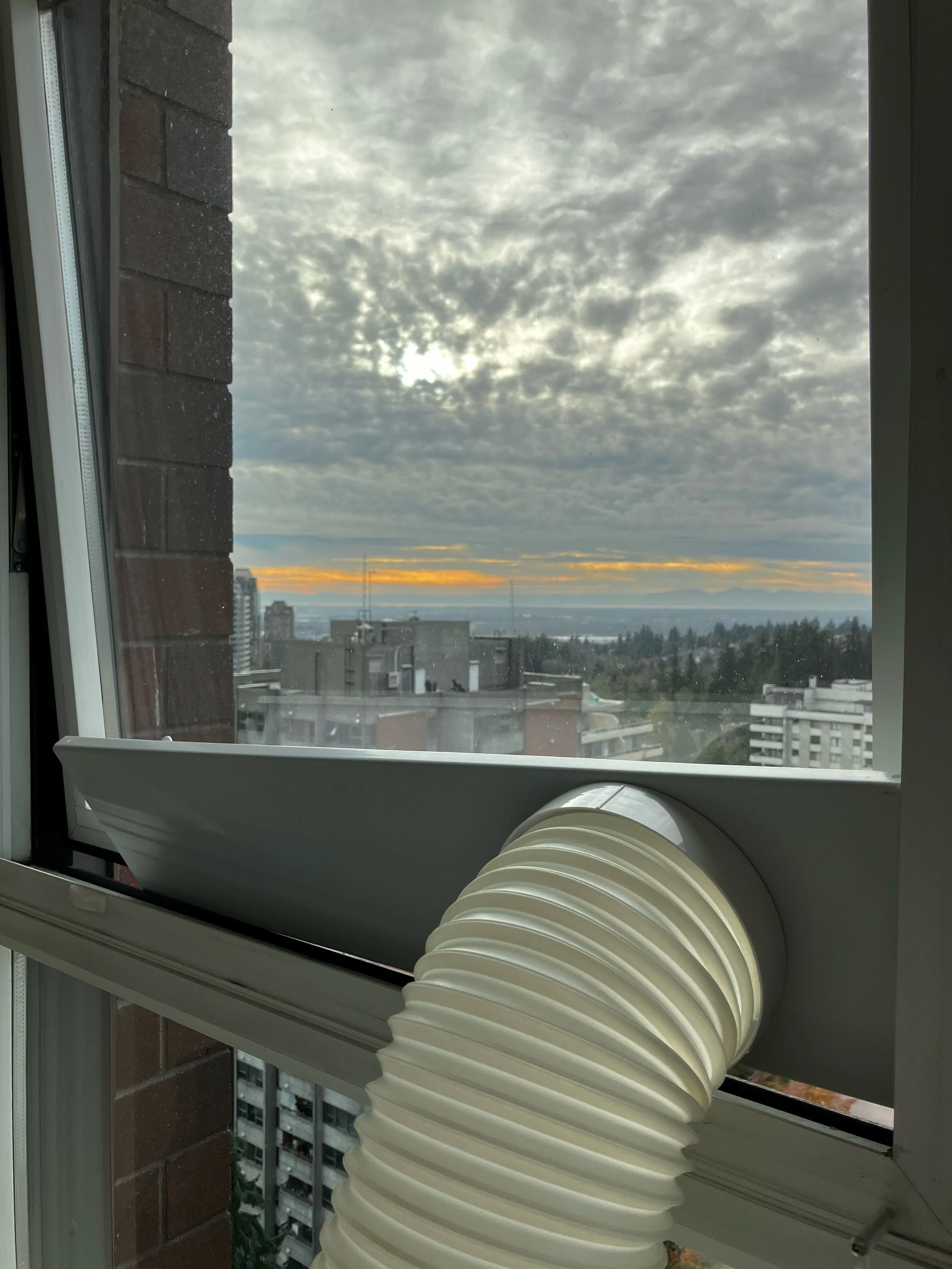VANCOUVER
In British Columbia, the “eviction capital of Canada,” housing is increasingly unaffordable. Too often, what housing tenants can afford is unfit to withstand climate events such as heatwaves. As a result, Vancouver residents routinely sacrifice safety for affordability because the buildings least prepared for climate change are often the only ones they can afford.
That’s where we come in.
We need to do better
HEAT Vancouver catalyzes research-driven advocacy to transform BC’s housing system to equitably weather the impacts of the climate crisis. From 2024 to 2028, we will ally with tenant serving organizations and research participants of all stripes in the Lower Mainland to:
Generate qualitative and quantitative data on heat and housing rooted in the needs of community, and
Leverage community-based research findings to combat powerlessness, build coalitions, and advocate for just policy alternatives at the intersection of housing and climate.
Our Initiatives
-

Measure Indoor Environmental Quality
Using sensors for air pollution, temperature and humidity as well as wearable fitness trackers and surveys, we measure and document just how hot it gets in multi-residential unit buildings, as well as how that heat lands on bodies and impacts daily life
-

Implement and Evaluate "Climate Safe" Rooms
In a system rigged to prioritize profit over people, we know that technical fixes only take us so far. At the same time, we need accessible, low-barrier, short-term solutions that reduce harm and save lives now. We need the best “climate safe” rooms we can get, now.
-

Monitor Unanticipated Impacts of Climate Adaptation Policy
Municipal and provincial governments are implementing more and more well-meaning adaptation policies. What we don’t know is how those policies might end up negatively impacting tenants, 1/3 of BC residents, by driving evictions and rental increases.
-

Identify Mechanisms that Lead to Climate-Related Rent Increases / Evictions
With TRAC, we’re building a research tool that identifies tenants experiencing inequity at the intersection of housing and climate, and gathering their stories for use in advocacy that ensures thermal safety for low-income renters.
Meet the Team
-

Dr. Liv Yoon (Principal Investigator)
Assistant Professor in the School of Kinesiology at the University of British Columbia (UBC).
-

Dr. Mohammed Rafi Arefin (Lead Co-PI)
Assistant Professor (Environmental Justice and Social Change) in the Department of Geography at UBC.
-

Dr. Geraldine Pratt (Co-PI)
Professor of Geography and Canada Research Chair in Care Economies and Global Labour at UBC.
-

Naomi Klein
Associate Professor of Climate Justice at UBC, co-director of the UBC’s Centre for Climate Justice, and award-winning author.
-

Dr. Samantha Thompson
Postdoctoral Research Fellow in the School of Kinesiology at UBC
-

Dr. Kendra Jewell
Project Manager, Vancouver


